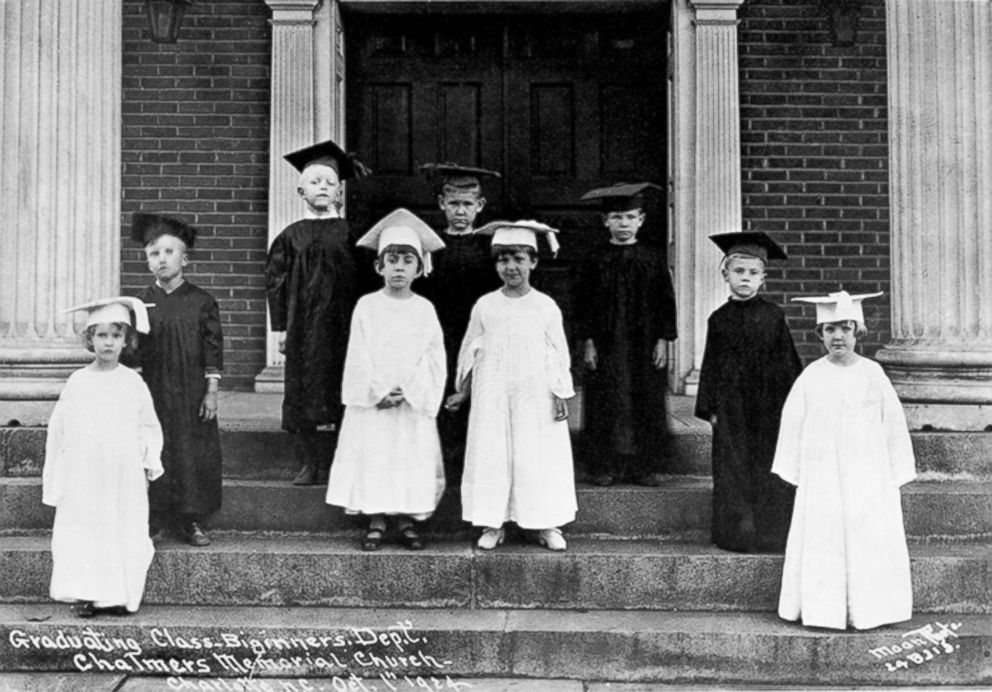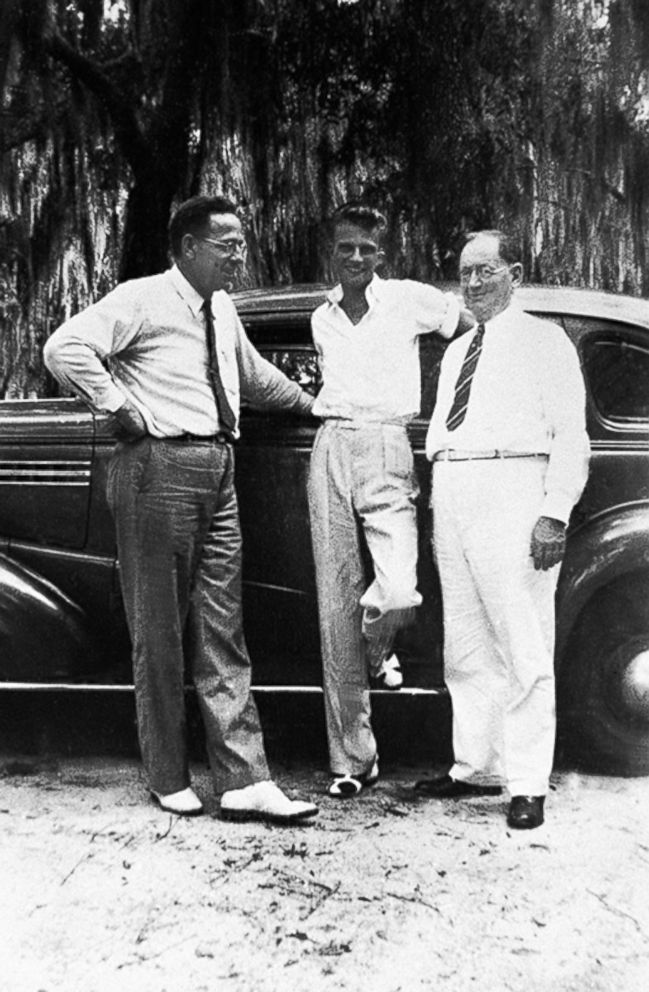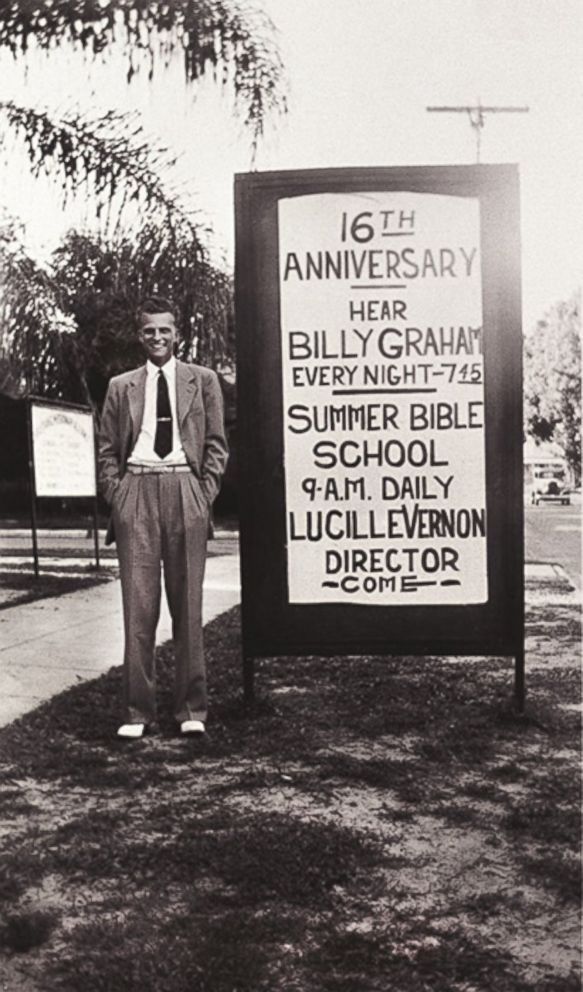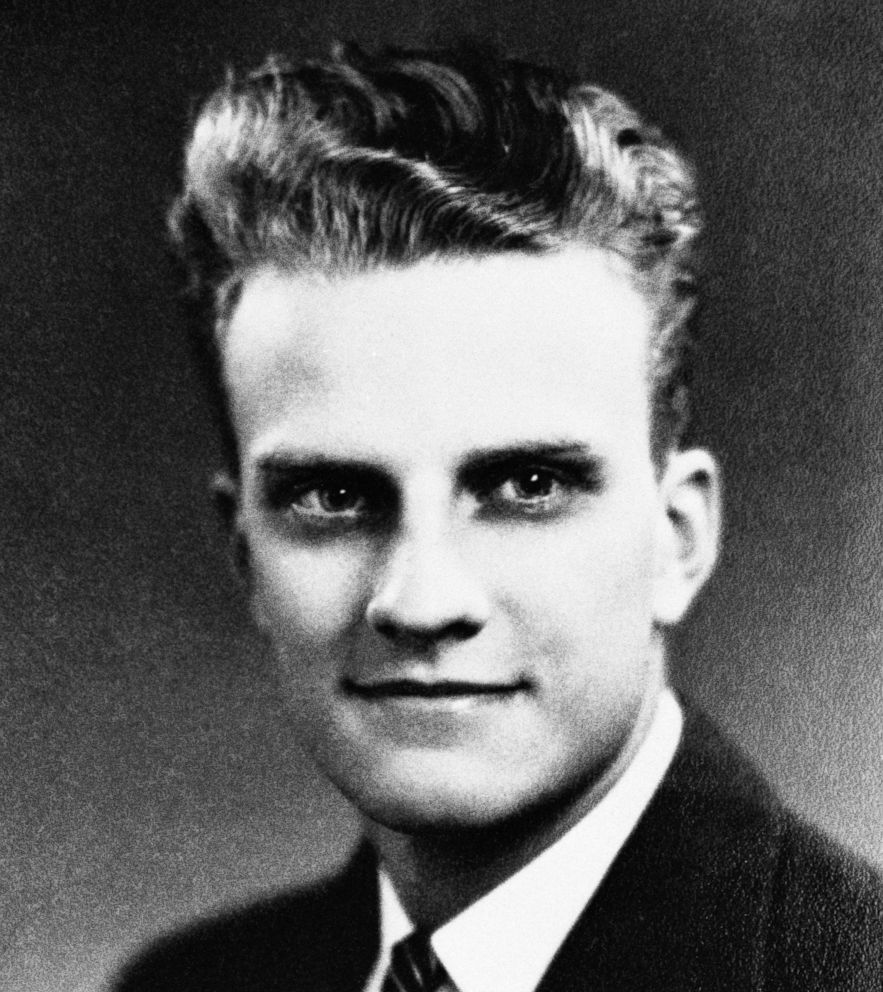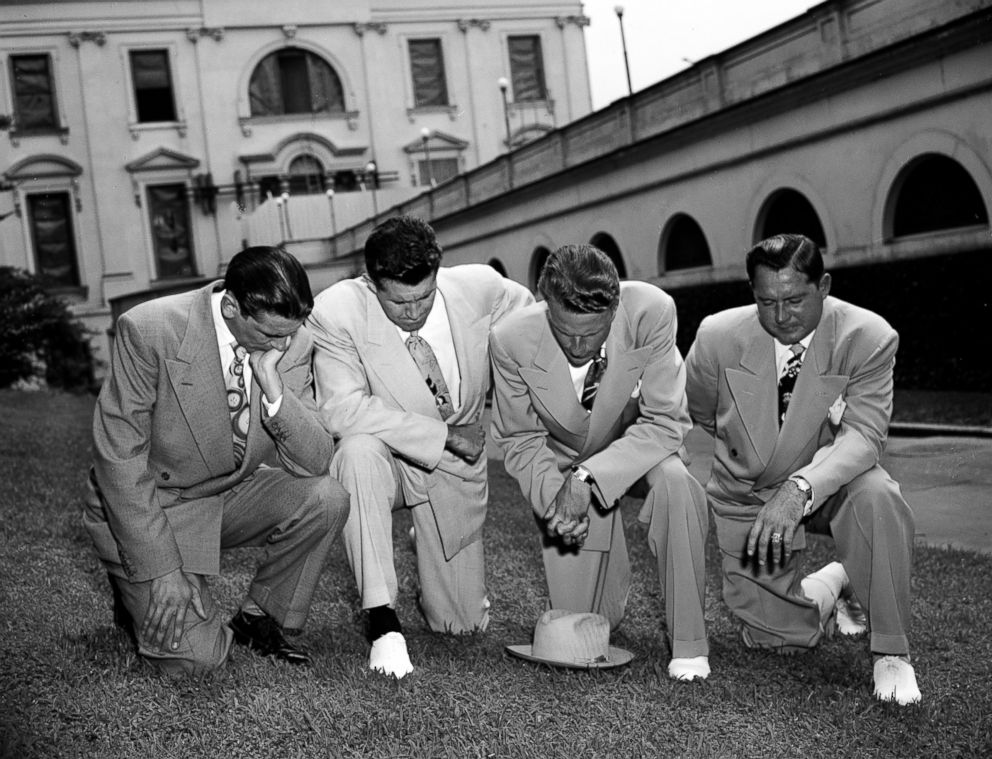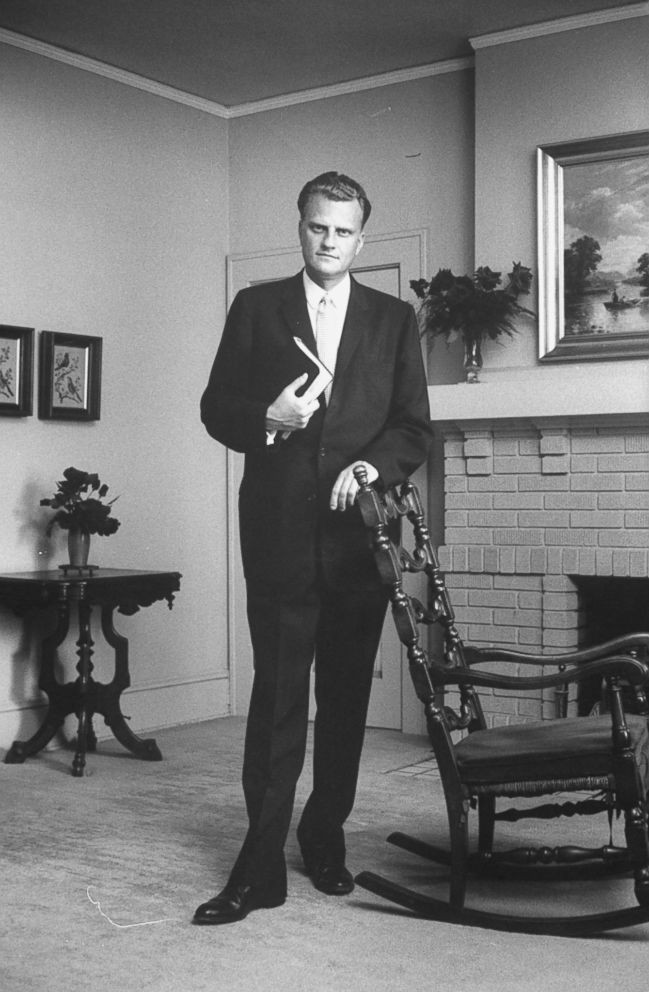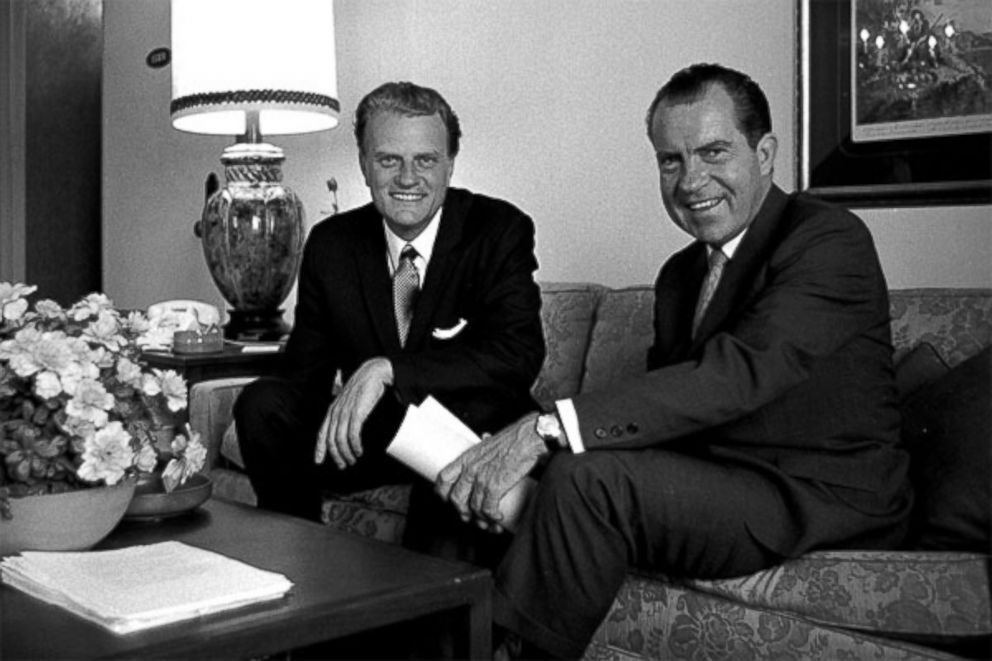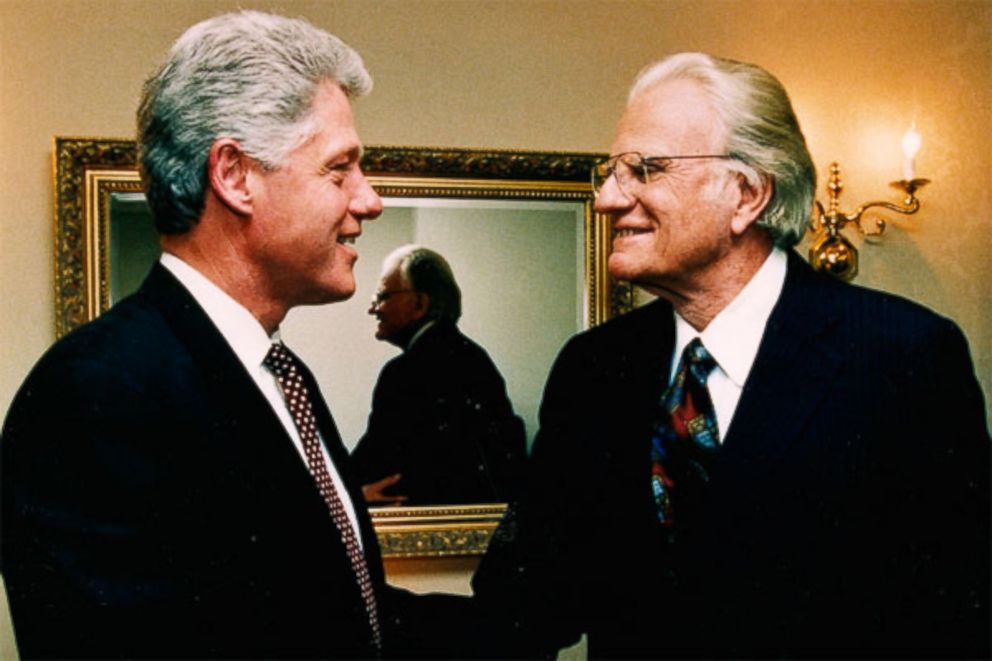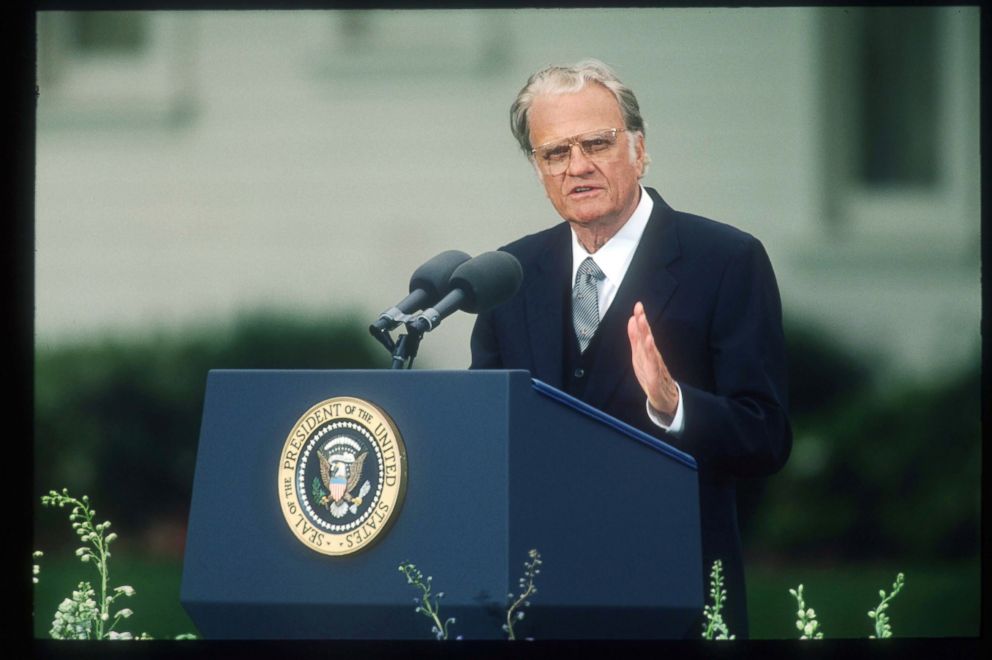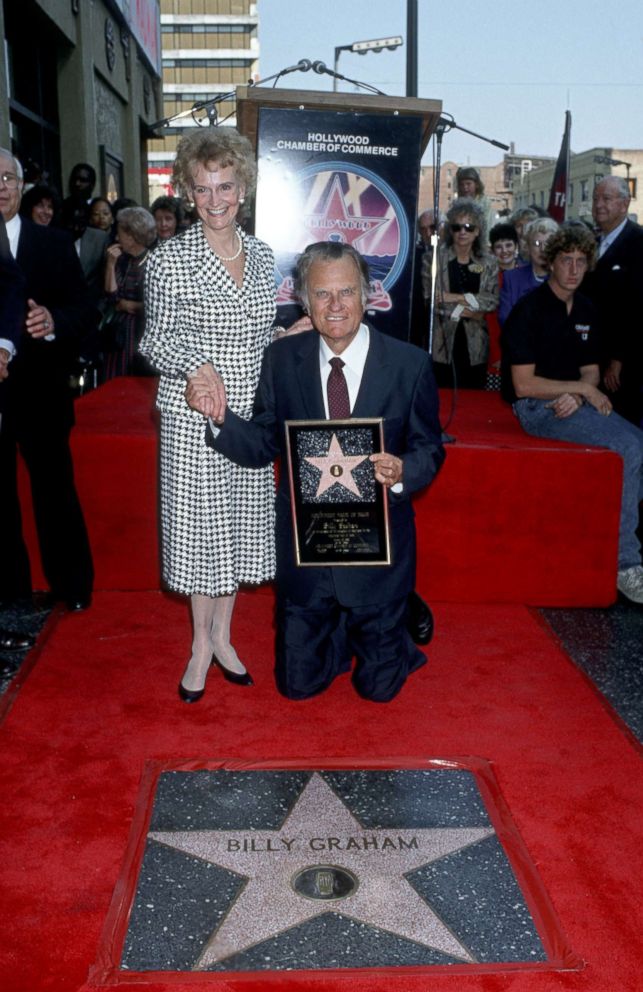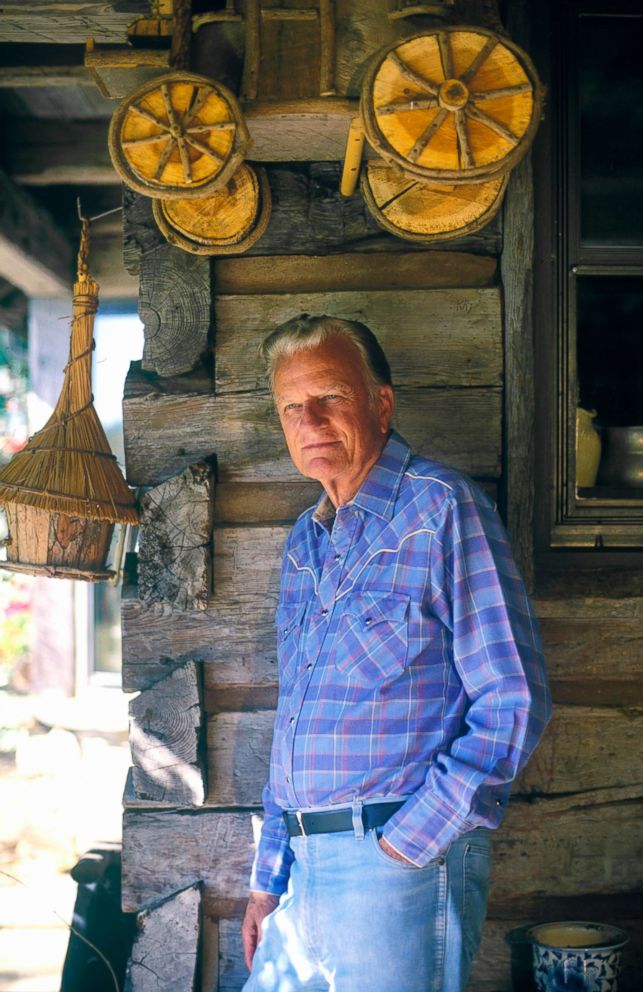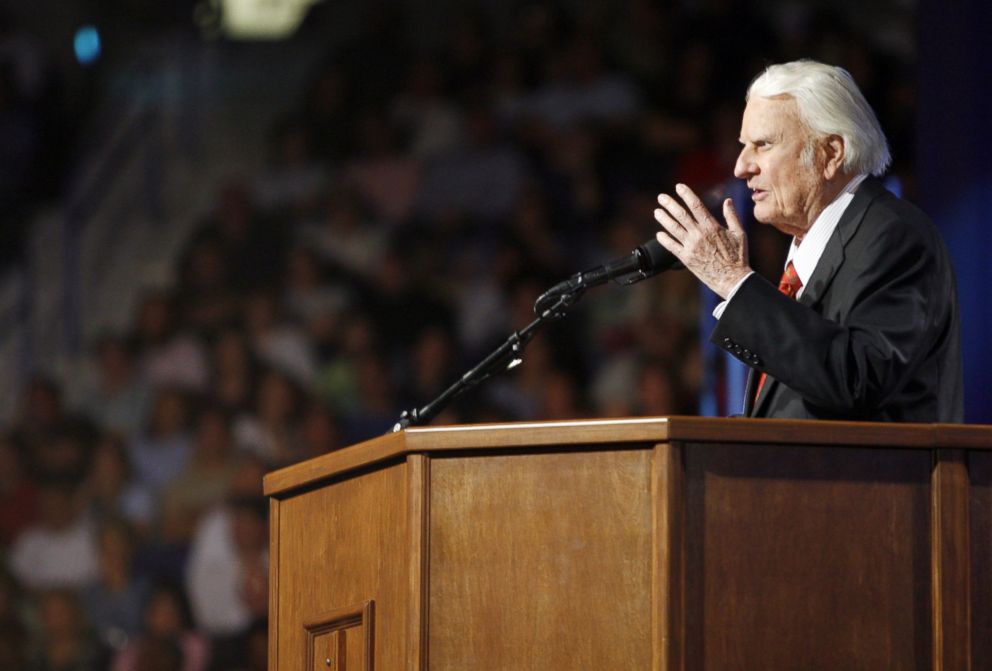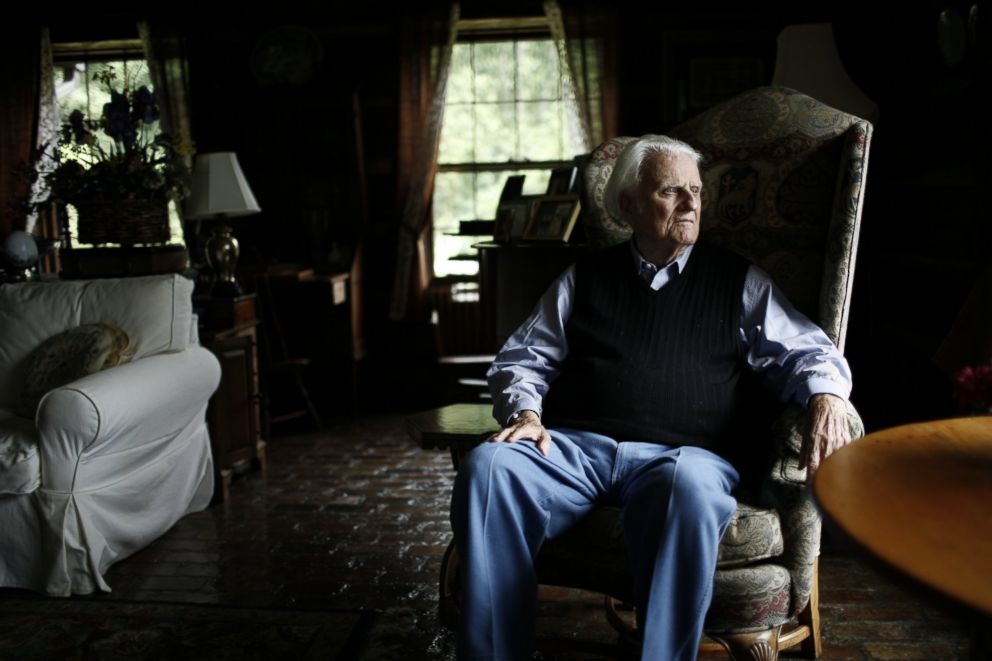World-famous evangelist Billy Graham's body in 130-mile procession to his hometown
Billy Graham's body was brought back to his hometown of Charlotte today.
— -- The body of the Rev. Billy Graham, one of the world's most famous Christian evangelists, was brought back to his North Carolina hometown Saturday in a 130-mile procession that drew scores of mourners and well-wishers.
The procession started at 11 a.m. ET with a ceremonial departure from a training center run by Graham's evangelistic association, nestled in the Blue Ridge Mountains in Asheville, North Carolina. A private family prayer service was held at the chapel earlier.
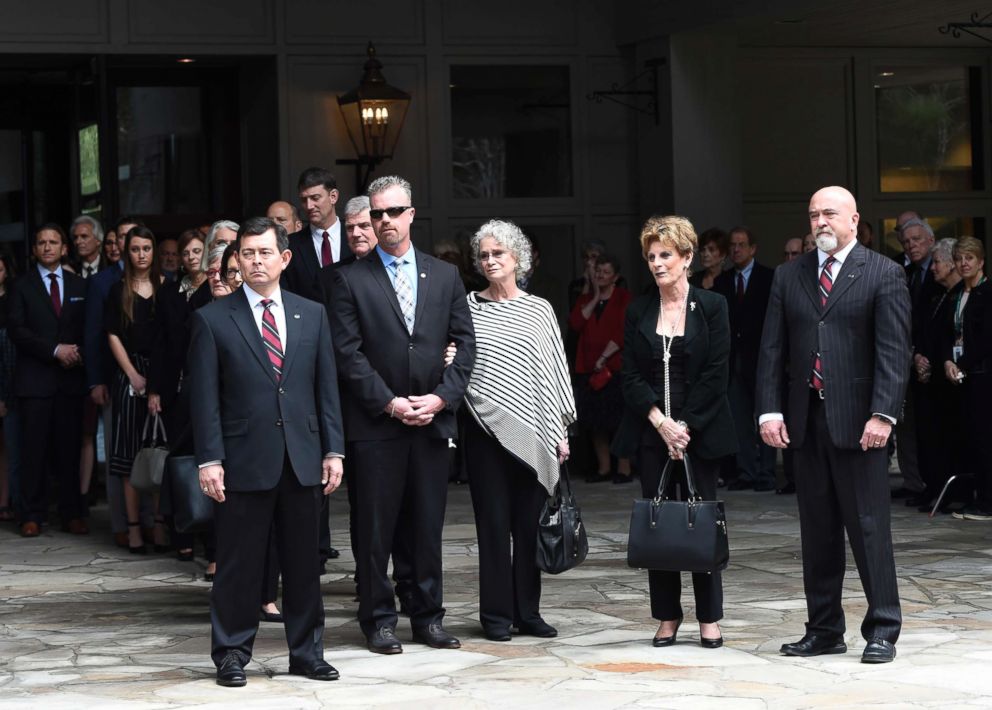
From there, the motorcade carrying the casket passed through the town of Black Mountain before turning onto the interstate for an approximately four-hour journey to the Billy Graham Library in Charlotte, near the town of Montreat, where the evangelist was born and grew up on a dairy farm.
There were designated viewing areas along the procession route for the public to pay their last respects.
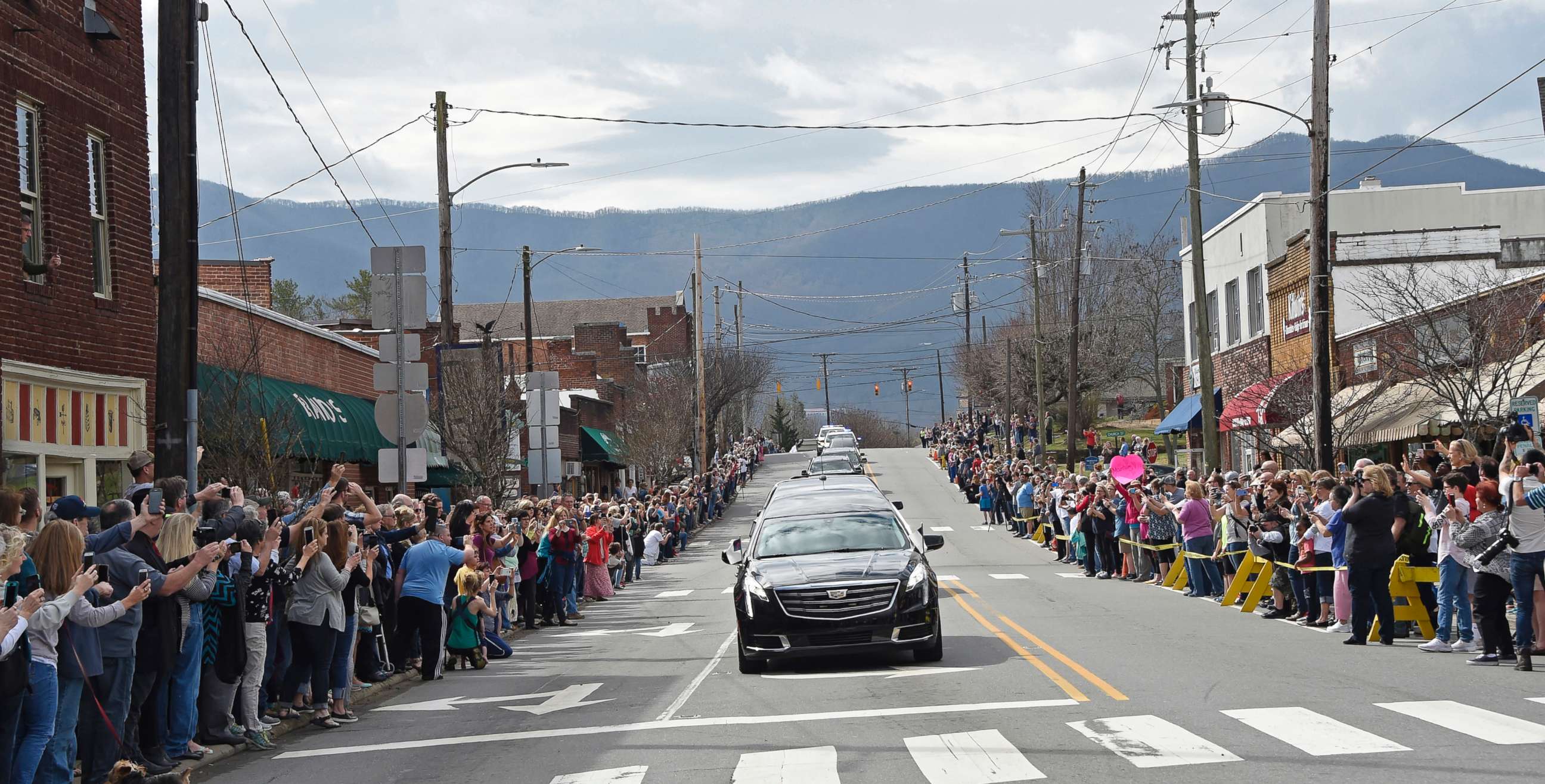
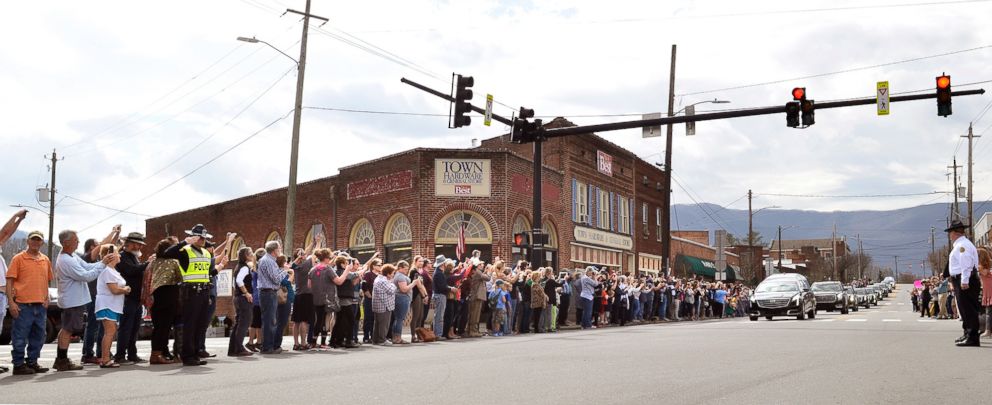
A ceremonial arrival for the procession took place at the Billy Graham Library, where Graham's body will be buried alongside his wife, Ruth, after a funeral next week.
Graham died Wednesday morning at his home in North Carolina's mountains, spokesman Mark DeMoss said. He was 99.
He is survived by three daughters and two sons as well as numerous grandchildren and great-grandchildren. His wife died in 2007.
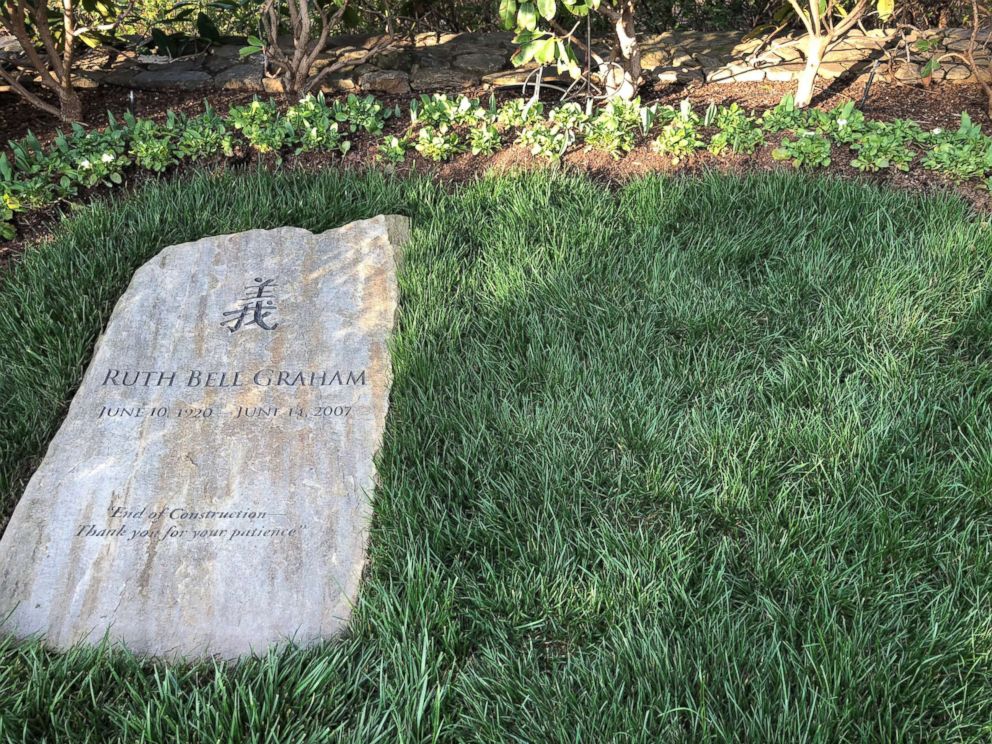
Billy Graham through the years
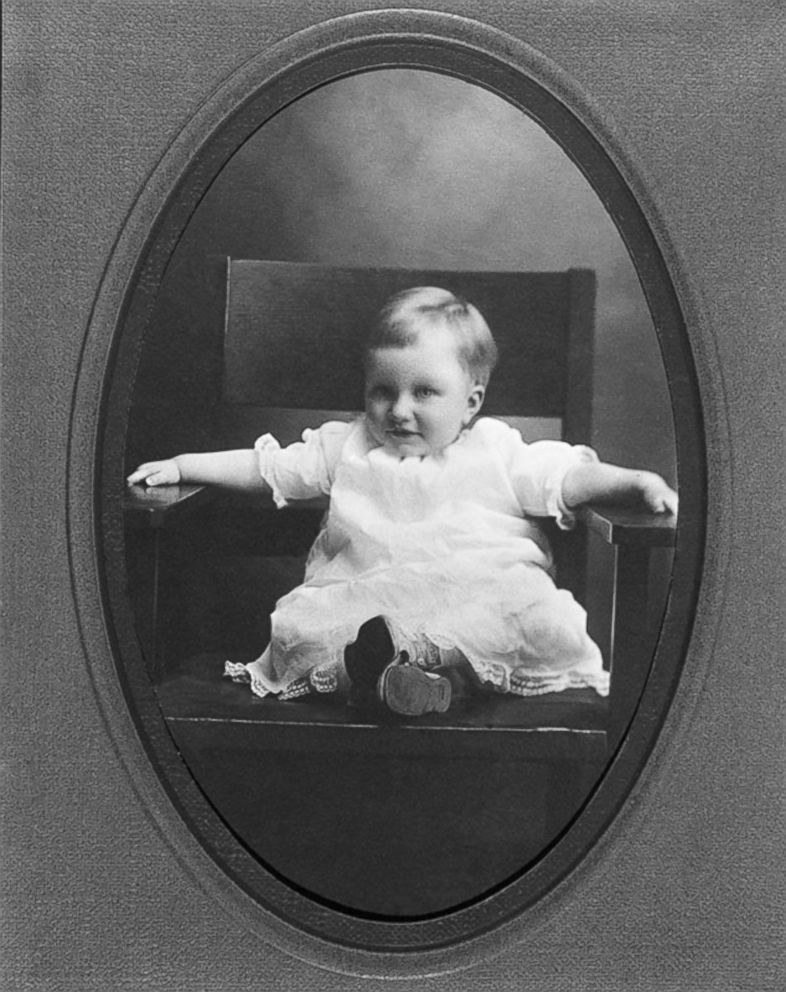
Known as "America's pastor," Graham was a key figure in the revival of the U.S. evangelical Christian movement. He began holding revival meetings in the 1940s and went on to become an adviser to several U.S. presidents.
Graham had been in poor health in recent years and had turned his international ministry over to son Franklin Graham. The elder Graham did not have cancer, despite reports claiming otherwise, his spokesman said.
Despite numerous hospitalizations in recent years, Graham's work remained in the public eye late into his life. In 2011, around his 93rd birthday, he released what The Associated Press said was his 30th book, "Nearing Home: Life, Faith, and Finishing Well," on the subject of aging. Also in 2011, audio files documenting six decades of his ministry were put online in a searchable database.
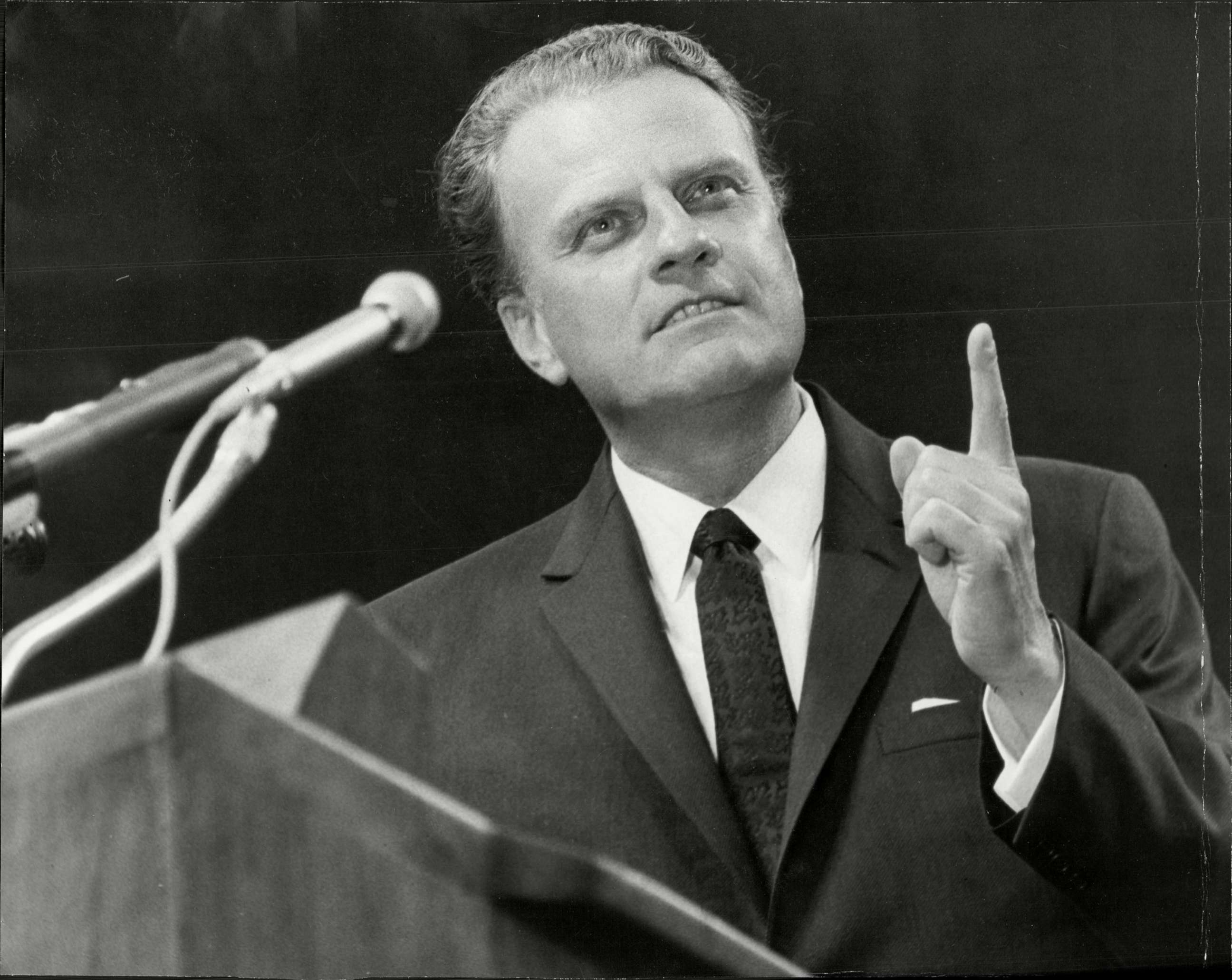
Graham brought evangelical Christianity into the mainstream. As a spiritual adviser to U.S. presidents, he had great access to the White House.
"Each one I've known long before they ever became president, been in their homes many times; always called them by their first names, until they became president," Graham said of several former presidents.
He was especially close to Dwight D. Eisenhower, Lyndon Johnson, Richard Nixon, Ronald Reagan and both Bushes.
Bill Clinton turned to him after his much publicized sex scandal, and George W. Bush credited Graham with helping him to quit drinking alcohol.
When asked how his life would be different if it were not for Billy Graham, George W. Bush said simply, "I wouldn't be president."
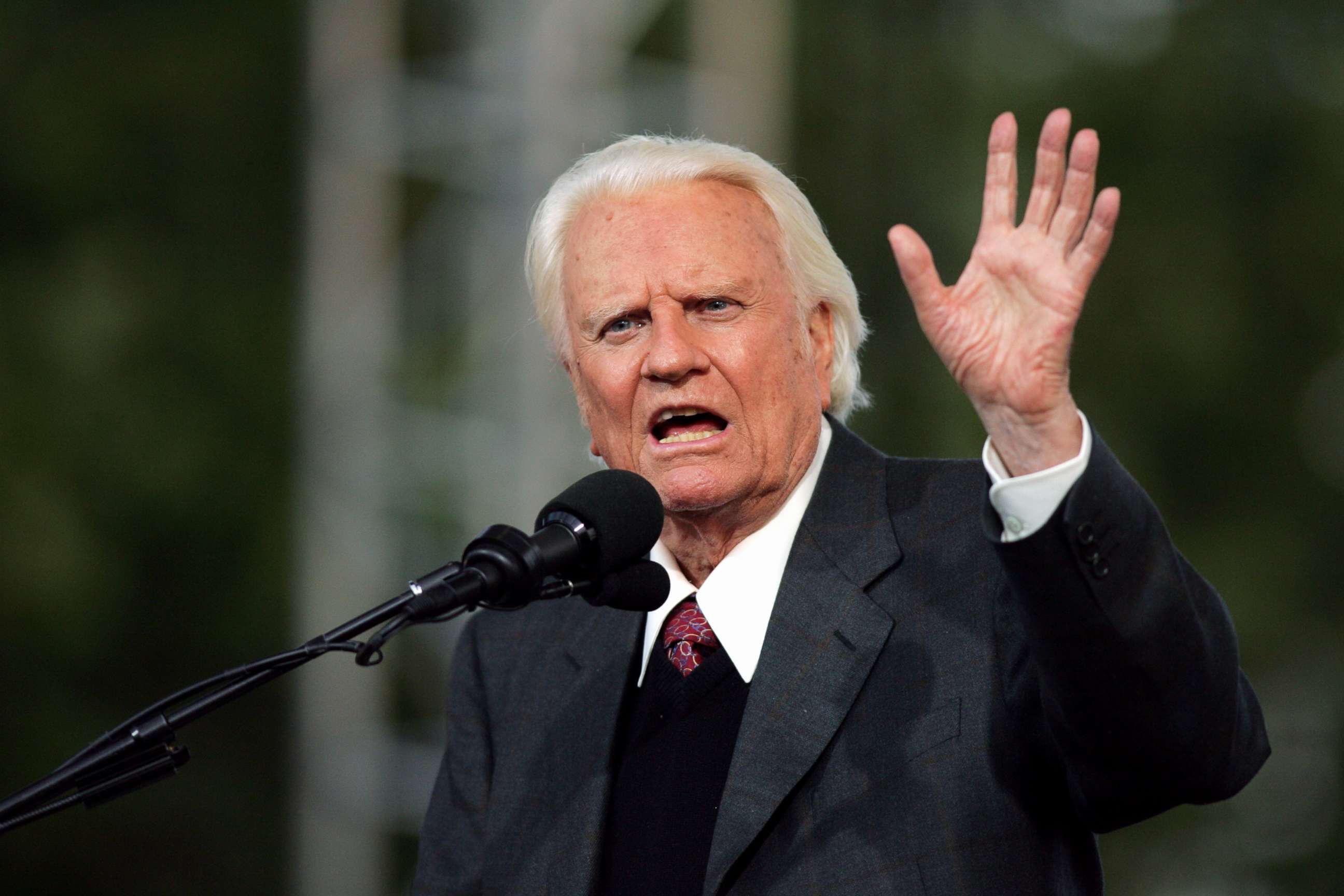
The evangelist brought his "Billy Graham Crusades" around the world, preaching to more than 210 million people in 185 countries and territories. His largest such gathering drew 1 million people in Seoul, South Korea, in the 1970s.
However, Graham was met with criticism in February 2002, when audiotapes released by the National Archives revealed a 1972 conversation with Nixon at the White House in which Graham said Jewish people had a "stranglehold" on the media.
He later apologized and said his work with Jewish people over the years belied that remark.
Donald and Melania Trump met Graham at the preacher's 95th birthday party in 2013, but they never met after Trump took office as president.
Invitations to Graham's funeral on Friday have been extended to Trump and Vice President Mike Pence, as well as living ex-presidents, DeMoss said.
